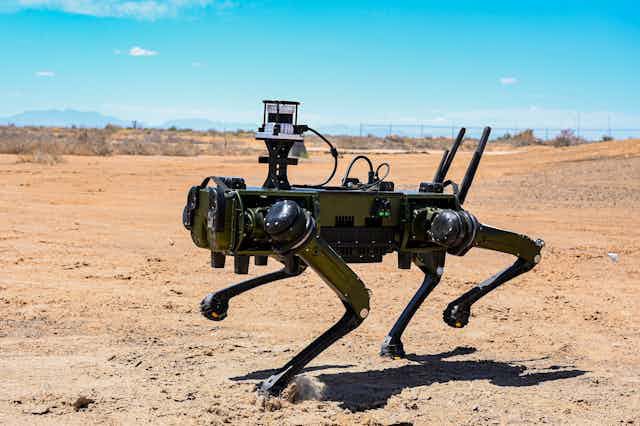

Initially, gaining a comprehensive understanding of AI requires examining its unforeseen evolution in military operations throughout the past few decades, stemming from its initial research in computer and technology, which has now become integral to military technology. The decades of the 1950s and 1960s laid a crucial groundwork for the significant advancements in military technology that we witness today.
Nevertheless, this progress is not without hurdles, and AI has encountered numerous challenges in its operations due to concerns regarding humanitarian issues and the legitimacy of the international community. Moreover, public opinion on the utilization of AI in the military has been increasingly unfavorable. Artificial intelligence has made significant advancements in contemporary modern warfare, and is extensively utilized across various industries, representing the onset of the Fourth Industrial Revolution.
The intrinsic computing capabilities of AI systems enable them to outperform traditional systems in processing data more effectively, such as in decision-making, self-control, and self-regulation. The global powers are actively seeking to enhance their access to advanced AI devices. India, being a significant player in this trend, is actively striving to not only participate in this global transformation but also potentially assume a leadership position in it.
The United States has also been using AI for many years and continues to invest heavily in the development of advanced AI systems. The United States has been utilizing AI for an extended period and maintains significant investments in the advancement of sophisticated AI systems. Prominent US defense technology corporations, including Lockheed Martin, Northrop Grumman, and Raytheon, spearhead the integration of AI into missions.
Among the nations striving for progress in military AI, China faces limitations in its development due to factors such as dependence on foreign semiconductors and a shortage of qualified military personnel with technological expertise. It is worth noting the significance of Israel in this context, specifically due to its advanced defense system, the Rafale, which is actively advancing artificial intelligence for military operations.
Moreover, developing countries are embracing AI as a means to augment their defense capabilities, leading to a projected 12.4% expansion of the global AI military market, amounting to $24.7 billion by 2032. Advanced artificial intelligence systems have the potential to influence stability not only domestically but also on a global scale. The influence of artificial intelligence on nuclear power is particularly significant.
To illustrate, the United States and Russia are engaged in significant competition to advance their military AI capabilities, resulting in a growing sense of mistrust among them. The United States has consistently underscored the significance of upholding its leadership in military AI innovation to bolster its capabilities in intelligence, surveillance, espionage, command, control, and weapons systems.
In comparison, Russia’s official narrative on artificial intelligence has experienced notable transformations since 2017. Indeed, artificial intelligence has the potential to augment military capabilities across various domains.
Ultimately, it is imperative to establish a comprehensive international agreement aimed at mitigating these challenges to foster stability among nuclear powers, and diminish the menace to global security.

